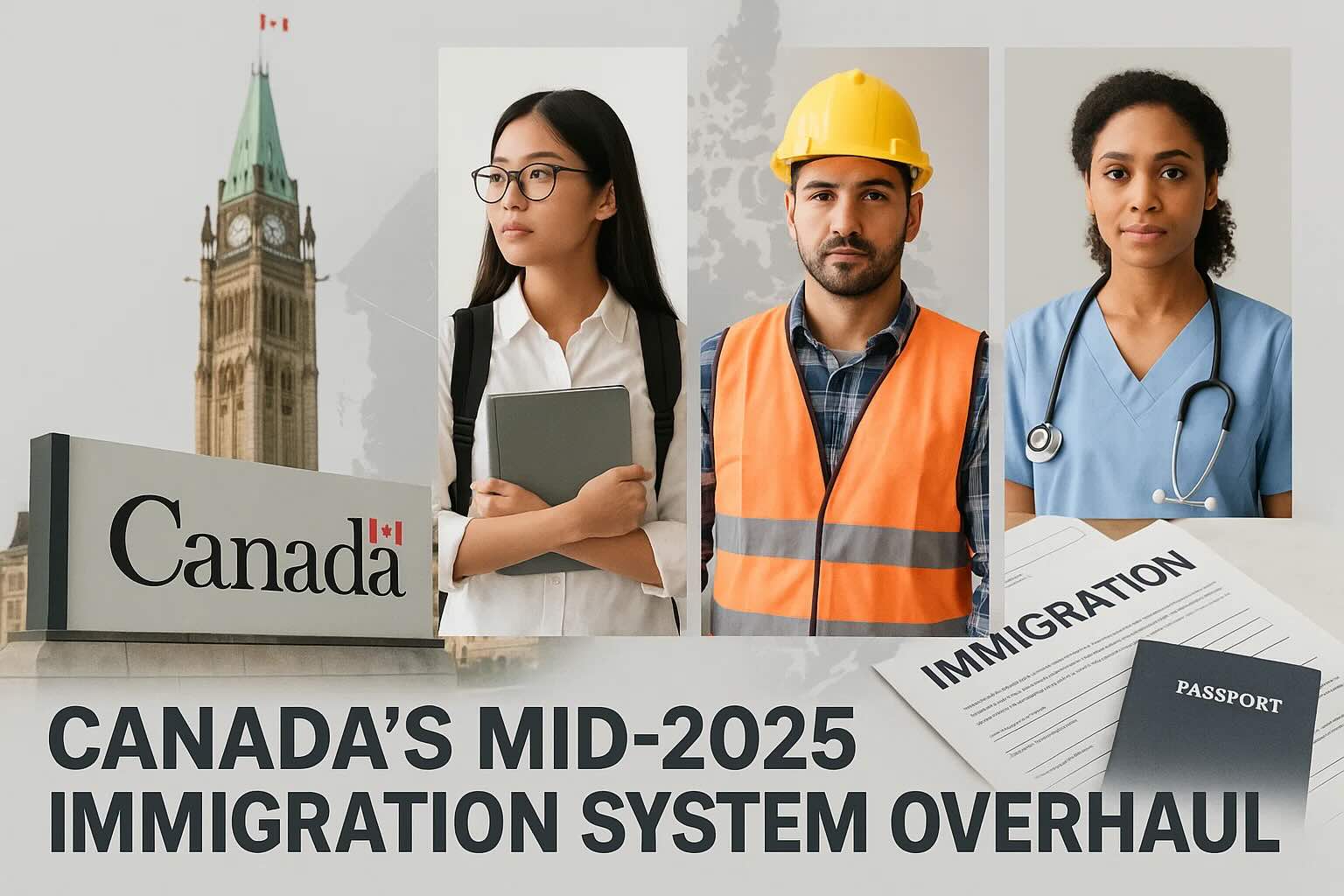
Canada's Immigration System Undergoes Key Adjustments: 2025 Mid-Year Review Highlights Quota Reductions and Policy Updates
In the first half of 2025, Canada's immigration system underwent a profound structural adjustment. The federal government not only lowered its permanent resident (PR) admission targets and historically set a cap on temporary residents, but also implemented significant reforms to core programs like Express Entry and the Provincial Nominee Program (PNP). The new policies reflect a clear strategic intent to tighten overall numbers, prioritize in-Canada applicants, and precisely guide new immigrants toward Francophone communities, rural areas, and key sectors such as healthcare and construction. This series of changes has had a far-reaching impact on global applicants, signaling that Canada's immigration policy is shifting from an era of broad-based intake to one of targeted selection.
07/05/2025
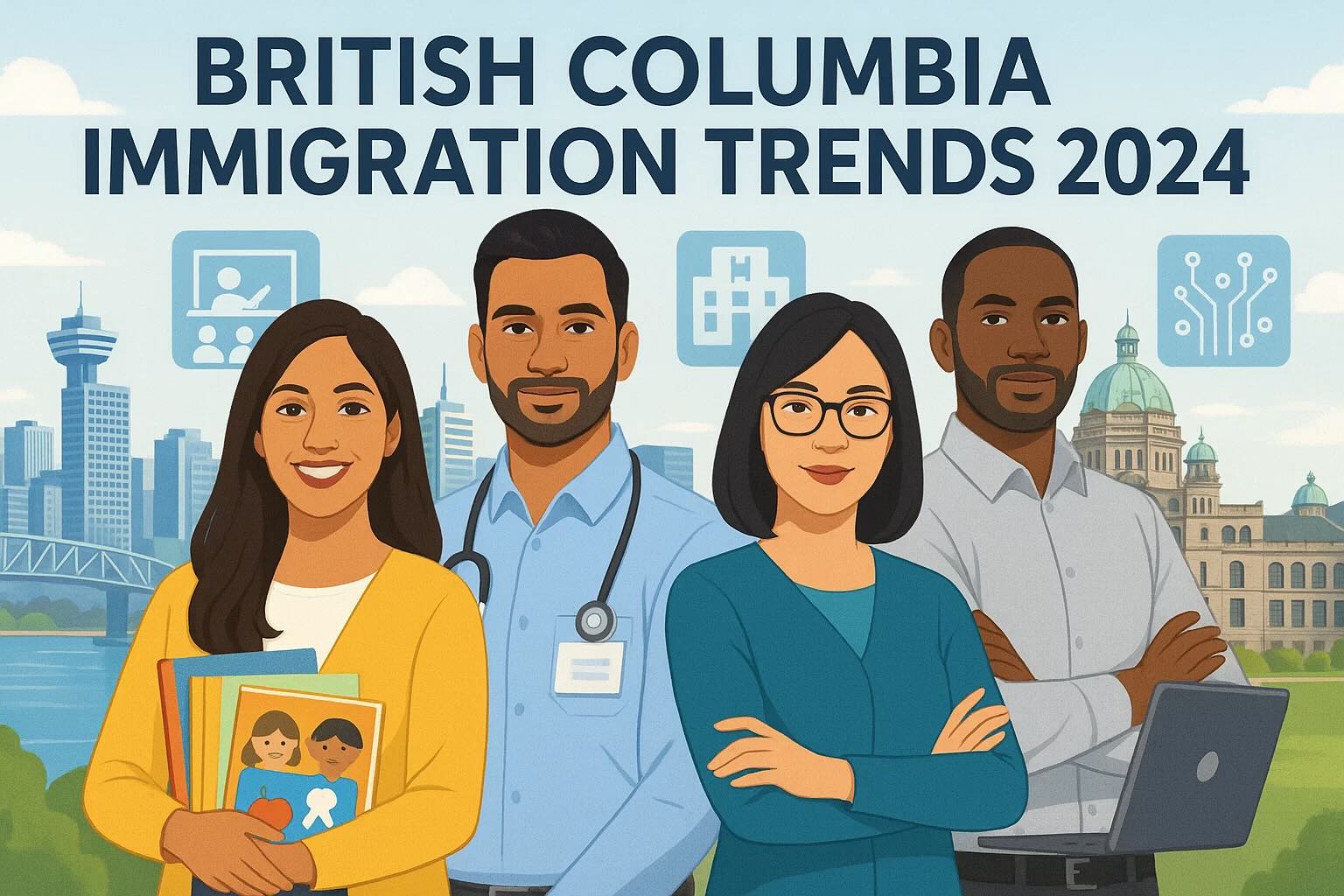
British Columbia Releases 2024 PNP Annual Report: Skills Immigration Dominates, Early Childhood Education Emerges as Top-Nominated Field
The British Columbia Provincial Nominee Program (BC PNP) has recently released its 2024 annual statistical report. The report shows that the province successfully issued its full allocation of 8,000 nominations in 2024, with the Skills Immigration category accounting for a staggering 99%. A notable trend is that, driven by the provincial government's prioritization of Early Childhood Educators (ECEs), occupations in education and social services have surpassed the tech sector to become the category with the most nominees. Furthermore, the report provides a detailed breakdown of nominee salary levels, primary countries of origin, and confirms major changes made to immigration pathways for international students in 2024.
06/29/2025
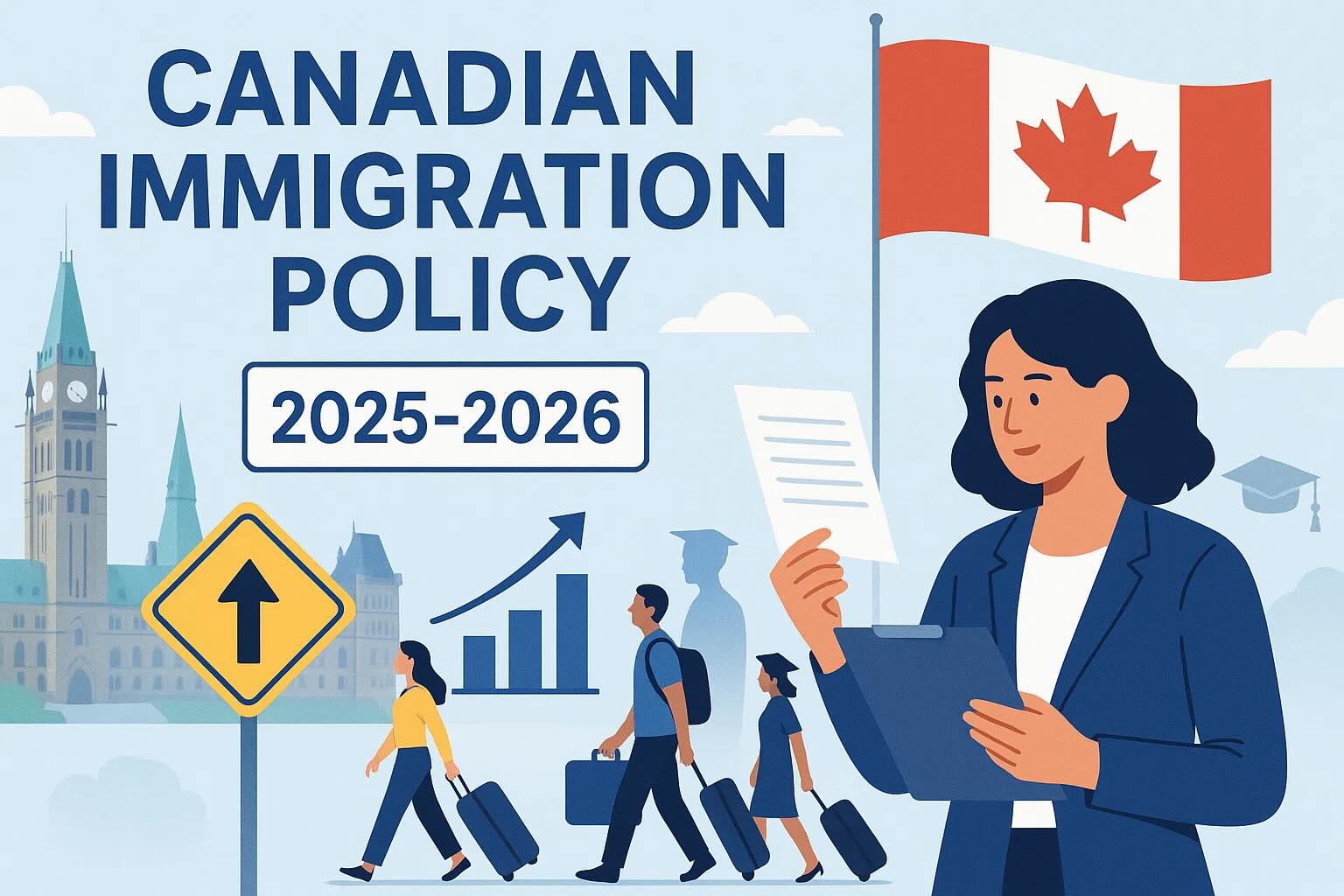
Canada Charts Course for 2025-2026 Immigration Policy: New PR Pathway Planned Amid Continued Tightening of Temporary Resident Rules
On June 20, 2025, Immigration, Refugees and Citizenship Canada (IRCC) unveiled its 2025-2026 Departmental Plan, setting a clear direction for immigration policy over the next two years. The plan introduces new immigration avenues for specific groups while continuing and reinforcing the policy of tightening controls on the temporary resident population, a trend that began in 2024. Key measures include proposing the conversion of the 'Economic Mobility Pathways Pilot' into a permanent immigration stream, creating a new work permit for the agriculture and fish processing sectors, adjusting eligibility for Post-Graduation Work Permits (PGWPs) and Spousal Open Work Permits (SOWPs), and explicitly capping the temporary resident population at 5% of Canada's total population. These initiatives reflect the Canadian government's balancing act between attracting needed talent and alleviating pressure on domestic social services.
06/27/2025
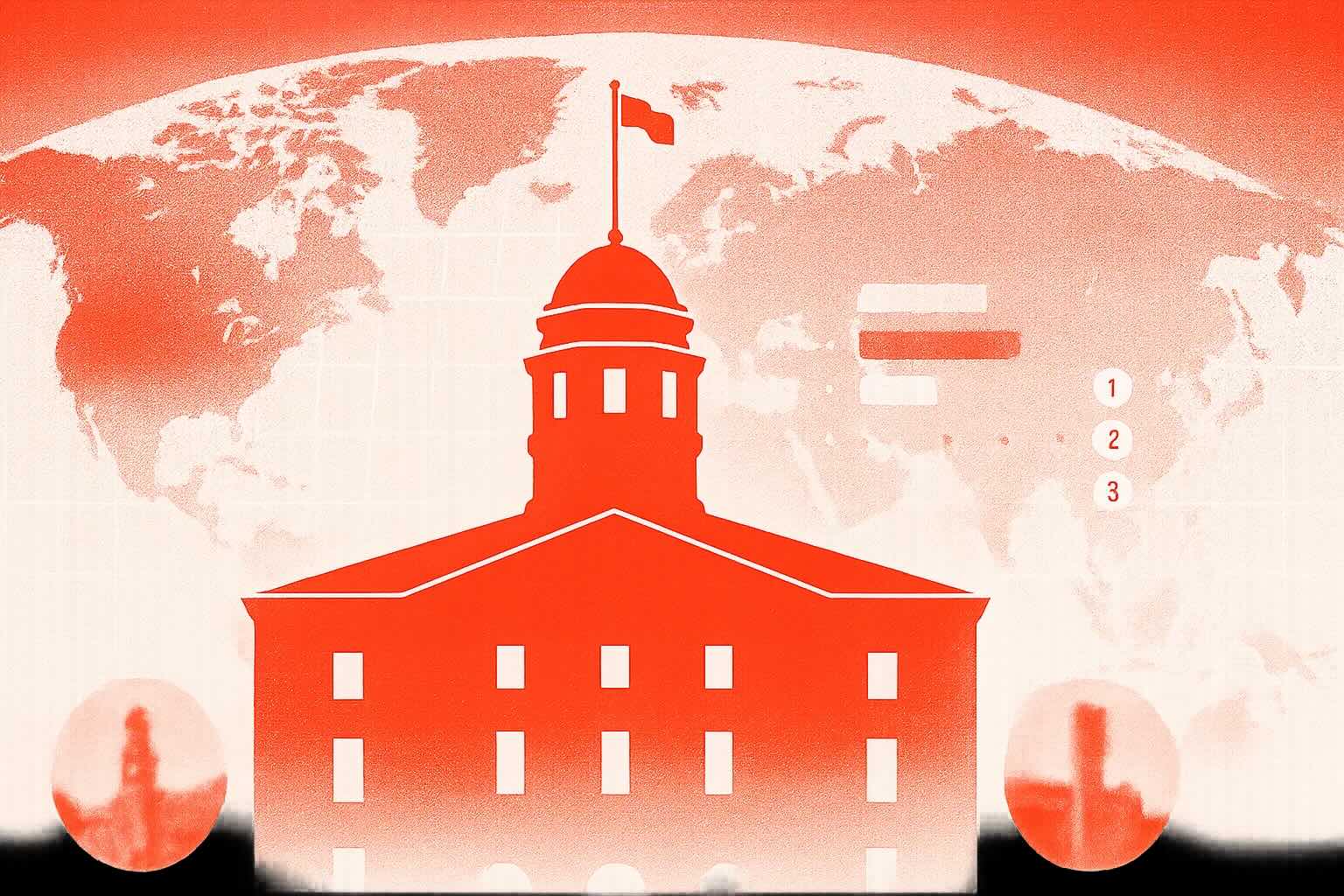
McGill University Named Canada's Top Institution in 2026 QS World University Rankings, with Four Schools in Global Top 100
The global higher education analyst Quacquarelli Symonds (QS) has released its highly anticipated 2026 World University Rankings. This year's edition highlights a major shift in Canada's top-tier academic landscape: McGill University in Montreal, ranked 27th globally, has surpassed the long-reigning University of Toronto (29th) to become the nation's highest-ranked institution. The University of British Columbia and the University of Alberta also secured their places within the global top 100. This article provides an in-depth analysis of the performance and key metrics of Canada's leading universities, along with an essential guide for prospective international students on applying for a Study Permit and a Post-Graduation Work Permit (PGWP).
06/25/2025
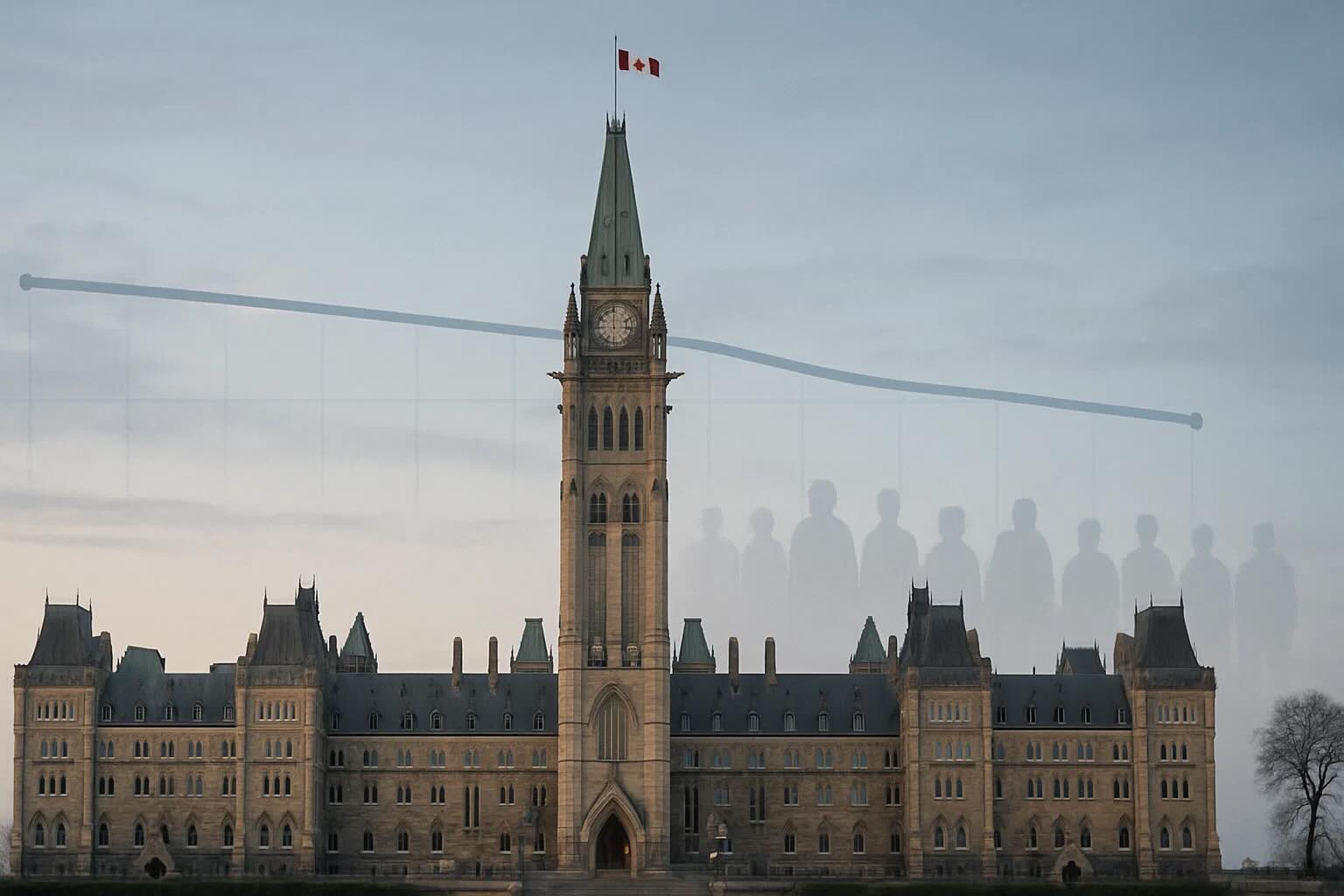
Canada's New Immigration Policies Take Effect: Population Growth Nears Standstill as Q1 Increase Hits Recent Low
Recent data from Statistics Canada reveals that national population growth nearly stalled in the first quarter of 2025, with an increase of only about 20,000 people, or 0.0%. This significant slowdown is primarily attributed to a series of restrictive immigration policies implemented by the federal government to address domestic pressures on housing and social services, including sharp cuts to temporary resident numbers and lower targets for permanent resident admissions. This article provides an in-depth analysis of the key policy measures driving this change and their specific impacts on various visa applicants.
06/20/2025

Planning a Summer Trip to Canada? Beware of 'Inadmissibility' Rules—Advance Planning is Crucial for Those with a Criminal Record
As the peak summer travel season approaches, many are planning to visit Canada to see family, friends, or attend events. However, Canada's stringent entry screening system may catch some visitors with criminal records off guard. Under Canada's Immigration and Refugee Protection Act, non-citizens with a criminal record may be deemed "criminally inadmissible" and denied entry. This article will detail the conditions that lead to inadmissibility and introduce the three official pathways to overcome this barrier: the Temporary Resident Permit (TRP), Deemed Rehabilitation, and individual Criminal Rehabilitation, to help affected individuals prepare in advance.
06/14/2025

Annual Review of Canadian Immigration Processing Times: Significant Fluctuations Across Application Types, Waiting Periods Double for Some Programs
Immigration, Refugees and Citizenship Canada (IRCC) regularly updates processing times for various visa and immigration applications for applicant reference. This article provides an in-depth analysis of changes in processing times for major permanent resident, temporary resident, and citizenship applications over the past year (comparing current data with that of June 25, 2024). Data shows that while processing times for programs under the Express Entry system have maintained high stability, others, such as Provincial Nominee Programs (non-Express Entry) and inland spousal sponsorships (outside Quebec), have seen substantial increases. Meanwhile, processing efficiency for some overseas work permits and inland study permits has improved. Understanding these dynamics is crucial for applicants planning to come to Canada.
05/30/2025
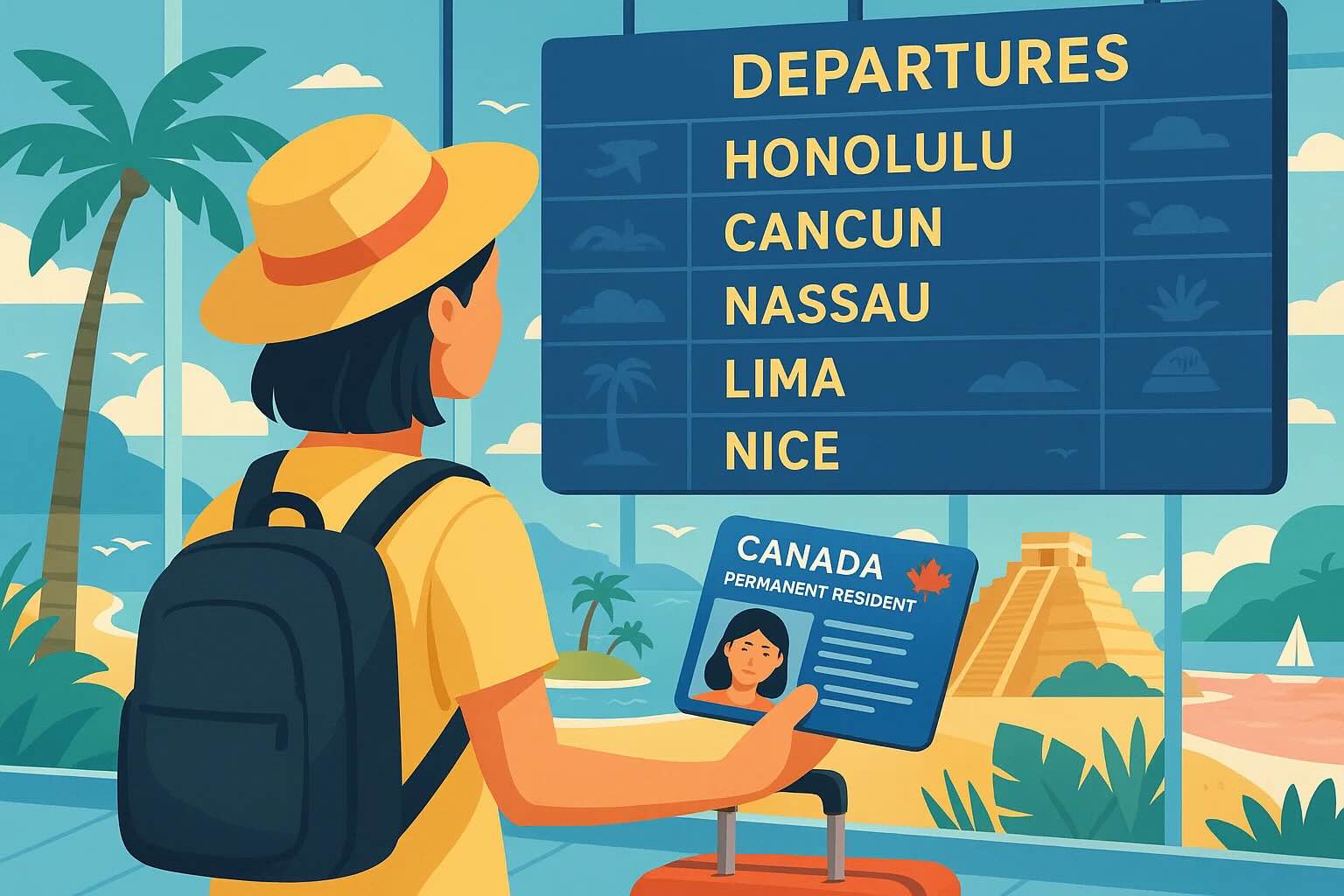
New Perk for Canadian Permanent Residents: Enjoy Visa-Free Access to Eight Popular Destinations with a Short Flight
For Canadian permanent residents (PRs), an often-underestimated benefit of their status is the opportunity for more convenient international travel. Without the need for cumbersome visa applications, PR status holders can, with their Canadian permanent resident card and a valid passport, easily visit numerous countries and regions for short-term tourism or stays. This article highlights eight visa-free destinations accessible via short flights from major Canadian cities, detailing their visa-free stay durations, flight times, respective tourist attractions, and any potential special entry requirements, offering a practical guide for your next trip.
05/28/2025

No News After Submitting Your Canadian Immigration Application? IRCC's Official Guide to Tracking Your Status
For many Canadian immigration applicants, knowing if Immigration, Refugees and Citizenship Canada (IRCC) has promptly received their application after submission is crucial. This article, based on official IRCC information, details the confirmation methods for different submission routes. This includes instant feedback and subsequent 'Acknowledgement of Receipt' (AOR) for online applications, tracking services for submissions via Visa Application Centres (VACs), and proof of delivery and online account linking for paper applications, helping applicants effectively track their progress and reduce anxiety.
05/23/2025
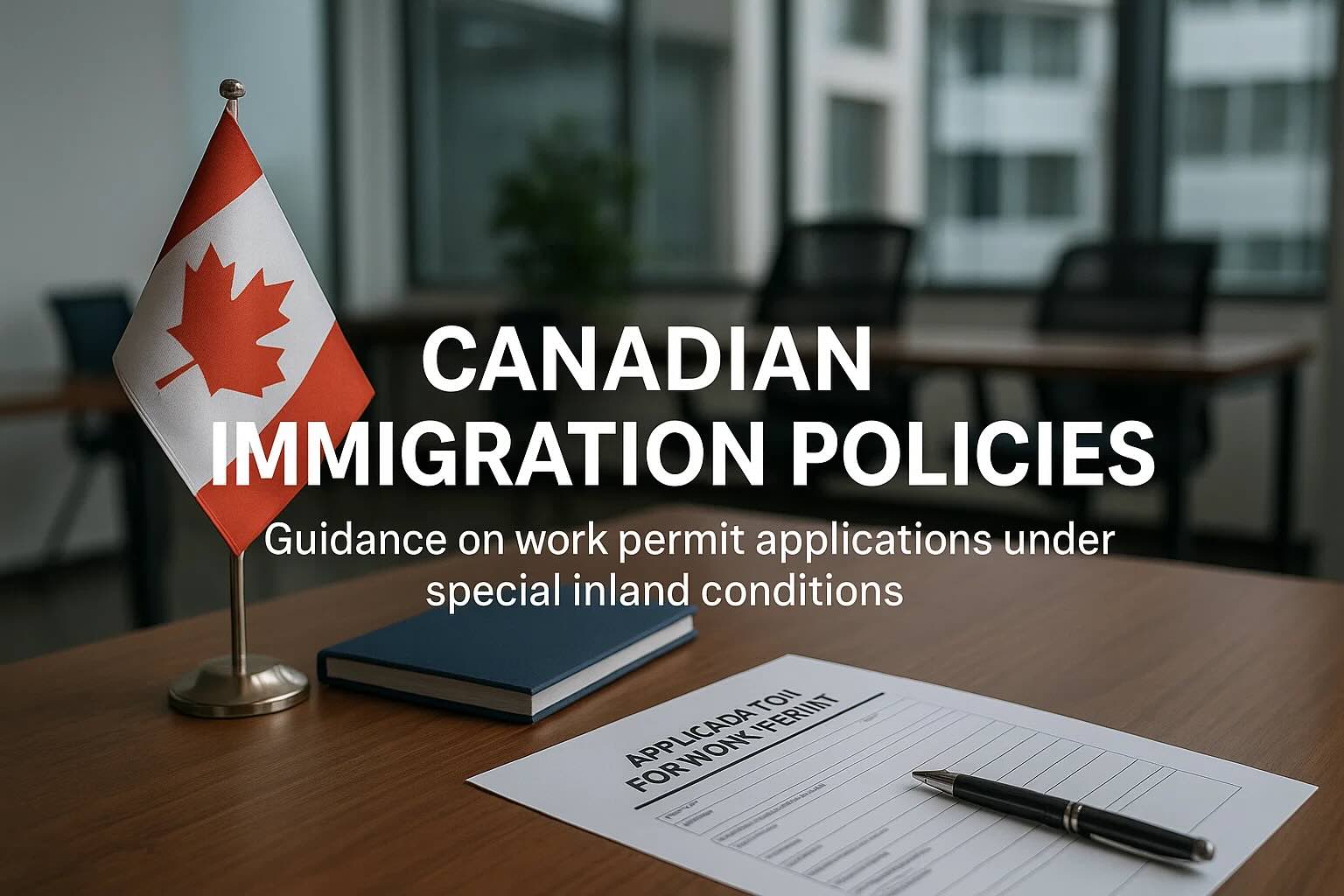
Canadian Immigration Insight: A Detailed Look at Nine Special Pathways for In-Canada Work Permit Applications
Typically, foreign nationals must apply for Canadian work permits from outside the country. However, Immigration, Refugees and Citizenship Canada (IRCC) provides for nine specific scenarios allowing eligible individuals to apply from within Canada. This article will delve into these nine exceptions, detailing eligibility criteria, important considerations, how to maintain legal status in Canada, and the specific application procedures, offering professional guidance for foreign nationals aspiring to work in Canada.
05/16/2025